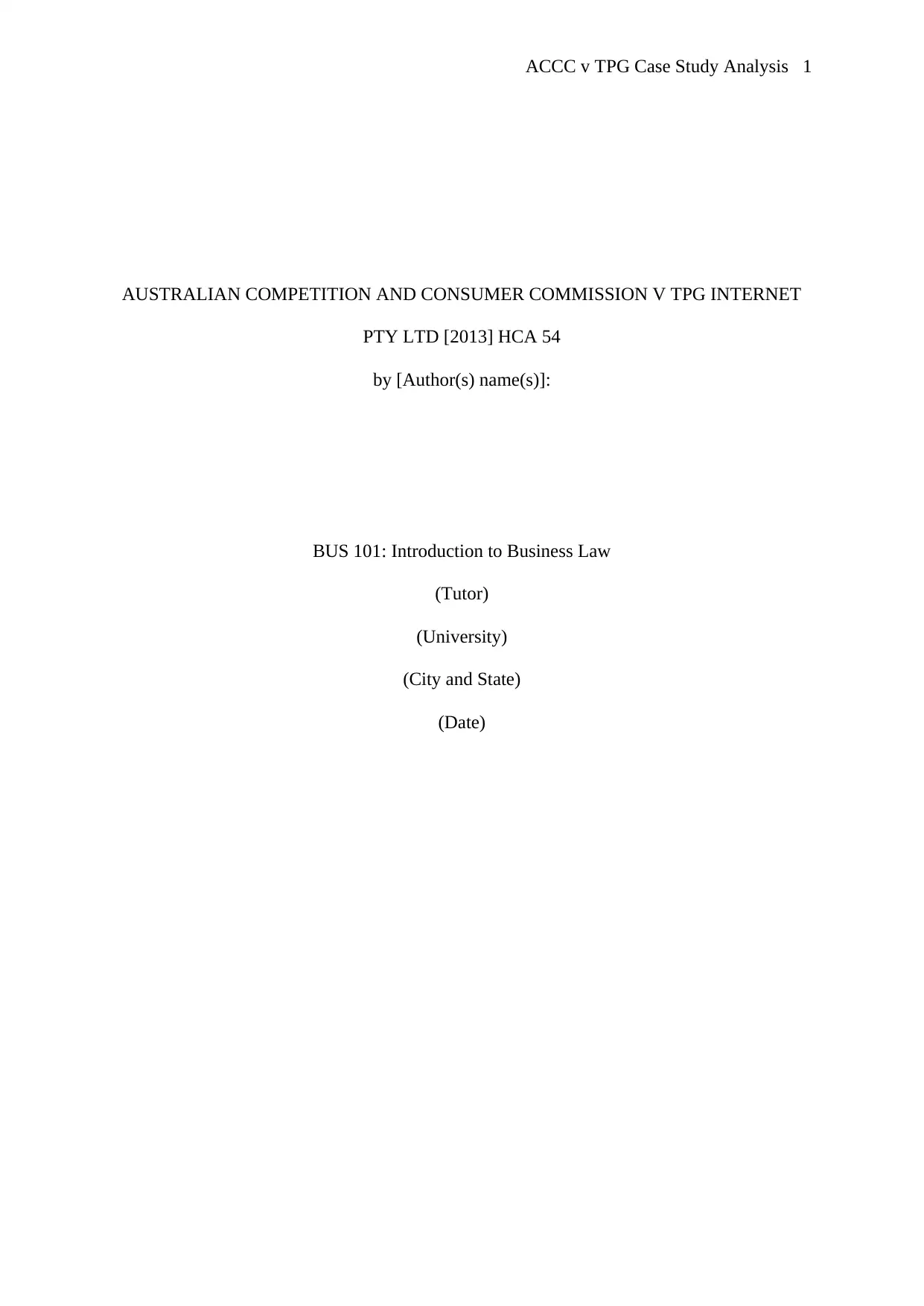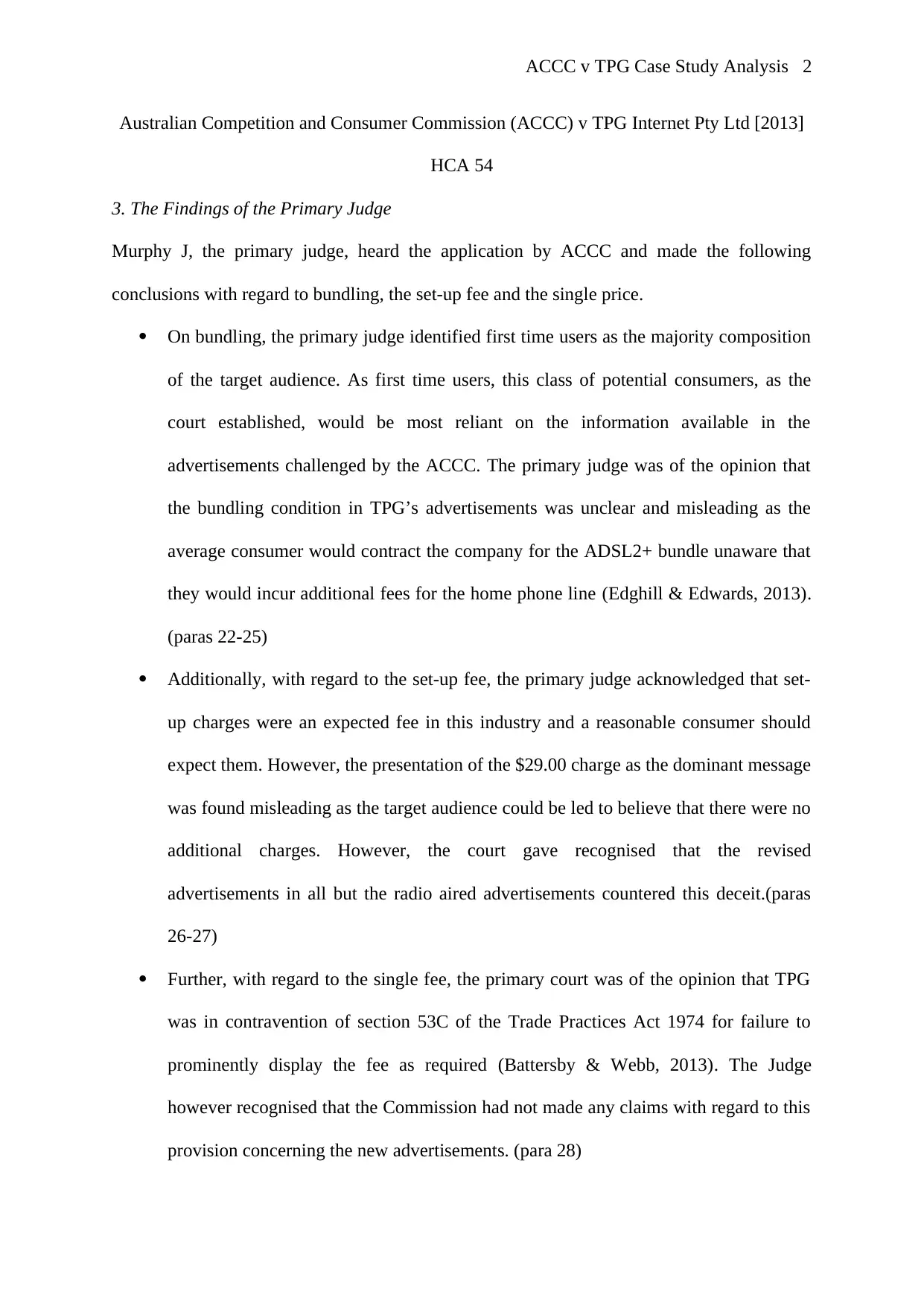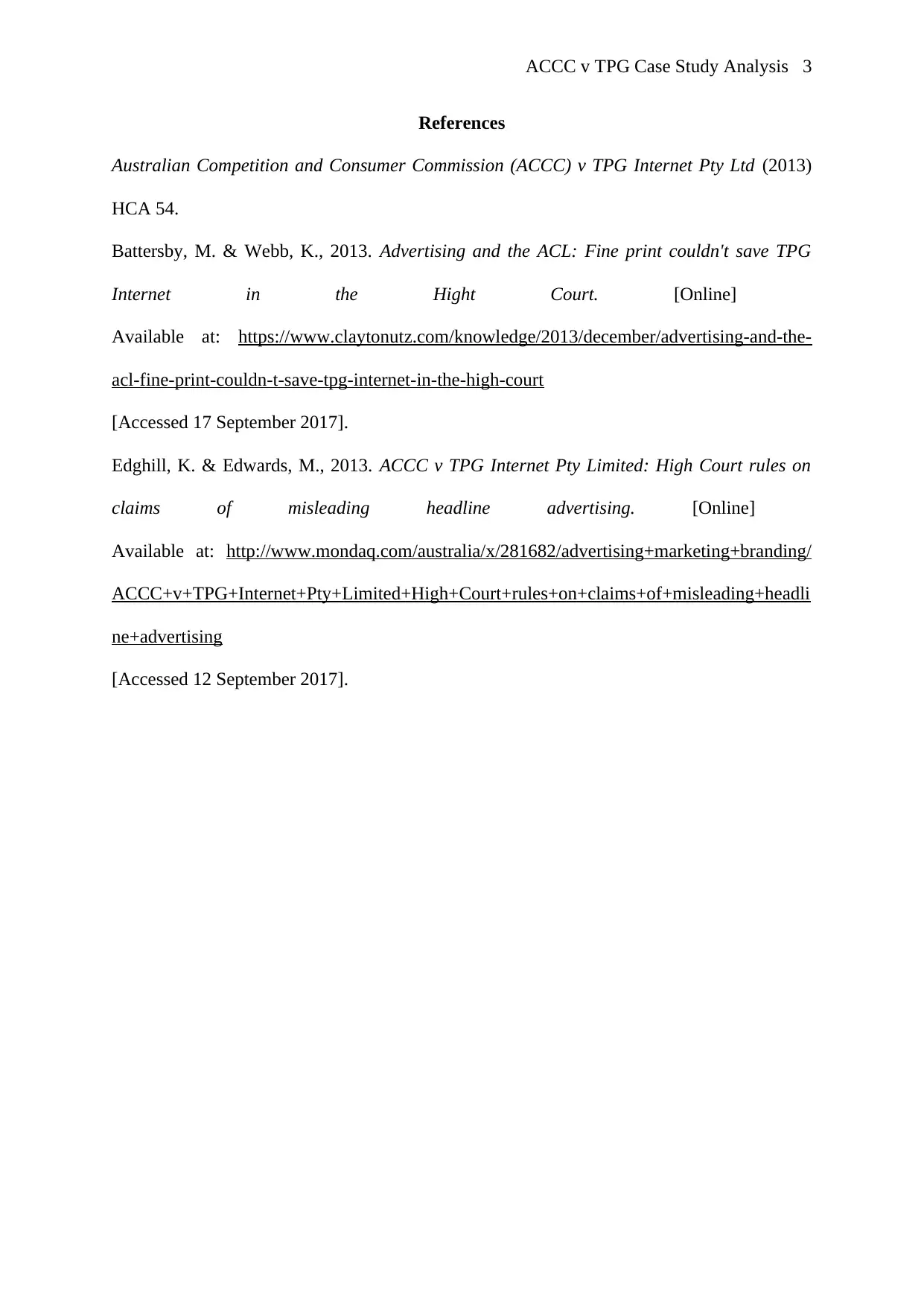Business Law Case Study: ACCC v TPG Internet Pty Ltd Analysis
VerifiedAdded on 2020/03/28
|3
|485
|269
Case Study
AI Summary
This case study analyzes the Australian Competition and Consumer Commission (ACCC) v TPG Internet Pty Ltd [2013] HCA 54. The primary judge, Murphy J, examined issues related to bundling, set-up fees, and single pricing. The court found TPG's bundling practices misleading, particularly for first-time users. The set-up fee was deemed misleading due to the prominence of the $29.00 charge. Furthermore, TPG was found to be in contravention of section 53C of the Trade Practices Act 1974 for failing to prominently display the fee. The analysis references the court's findings and relevant legal principles, including the application of the Trade Practices Act. The case highlights the importance of clear and accurate advertising to avoid misleading consumers.
1 out of 3










![[object Object]](/_next/static/media/star-bottom.7253800d.svg)